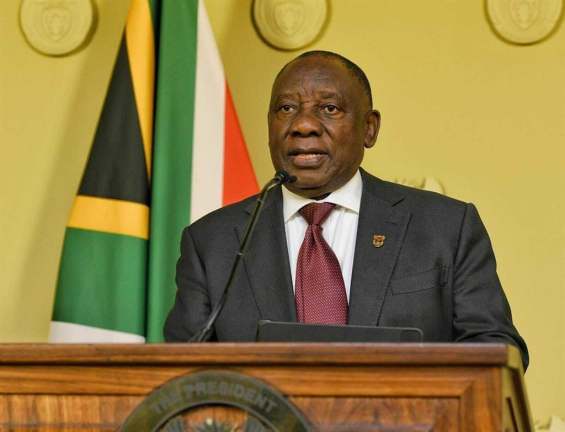A month after the May 29 parliamentary elections, South Africa has a new government. President Cyril Ramaphosa's African National Congress (ANC) retains the lion's share, with twenty ministries. The Democratic Alliance (DA), the second-largest political force in Parliament, secured six seats, while the other smaller parties have shared the remaining six ministries in the new coalition government.
«As constituted, this Government of National Unity shows that the negotiations were difficult, particularly between the ANC and DA, in addition to the five other parties. But in the end, the ANC won back almost 60% of the portfolios, even though it only received 40% of the votes in the last elections», researcher and Africa specialist Rachid Benlabbah told Yabiladi.
«The ANC retains control of most key ministries such as Foreign Affairs, Defense, Finance, Electricity and Energy, Trade and Industry, as well as the vice-presidency. For its part, the Democratic Alliance has secured ministries such as Home Affairs, Agriculture, the Civil Service, and Infrastructure».
A shift in Pretoria's Moroccan policy
«With this configuration, it is unlikely that the ANC will suffer any direct influence from the other parties regarding defense and foreign policy, for example», explained the researcher.
The new South African coalition government saw the departure of Naledi Pandor from Foreign Affairs, a strong supporter of the Polisario. Her successor is Ronald Lamola, also from the ANC.
«The choice of a jurist may presage continuity in foreign policy. Lamola was head of the Justice Department and, above all, led his country's case against Israel before the International Court of Justice», he stressed. What should not be forgotten is that «the ANC is drawing parallels between Palestine and Polisario», analyzed the academic.
«We'll have to wait for the announcement of the government's general declaration and the investiture speech by the Minister of Foreign Affairs» to get an idea of the Moroccan policy line in South Africa under the new government.
Nevertheless, Rachid Benlabbah does not rule out a long-term role for the Democratic Alliance, aiming «to influence the foreign policy pursued by South Africa since 2004, so that it is less inflexible towards partners that this same ANC regards with suspicion», including Morocco. South Africa recognized the SADR in 2004.





 chargement...
chargement...













